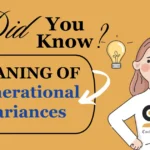WTF! Three little letters that pack a big punch. You’ve probably seen it countless times in text messages, social media posts, and online forums. But what does it really mean? Contrary to popular belief, it’s not just a random assortment of letters thrown together in frustration. Let’s dive deep into the world of “WTF” and uncover its true meaning and origins.
Understanding WTF: Decoding the Acronym
So, what does “WTF” stand for? At first glance, it might seem like a simple expression of disbelief or frustration. But when you break it down, it actually stands for “What The F*ck.” Yep, you read that right. It’s a colloquial expression used to express shock, confusion, or incredulity. But where did this colorful acronym come from? For more info click the link https://blog.ikeymonitor.com/slang/wtf
The Origins of WTF
Believe it or not, the origins of “WTF” can be traced back several decades. While its exact inception is somewhat murky, it’s believed to have emerged in the early days of internet chat rooms and instant messaging. As online communication became more prevalent, people began to seek shorthand ways to express complex emotions. And thus, “WTF” was born.
Evolution of Meaning
Over the years, the meaning of it has evolved beyond its literal interpretation. While it still retains its core essence of disbelief or shock, it’s also taken on new nuances and connotations. Today, “WTF” is not just a reaction to something outrageous or absurd; it’s also used as a playful expression of astonishment or amusement.
Dispelling Misconceptions: Understanding WTF in Context
let’s address a common misconception: that it’s simply a vulgar expression used to convey frustration or anger. While it’s true that it can indeed be used in such situations, its usage is far more nuanced than that. In fact, it has become a versatile expression that can convey a wide range of emotions, from shock and disbelief to amusement and incredulity.
Common Uses of WTF
One of the most common contexts in which you’ll encounter in text messaging and online communication. Whether you’re chatting with friends or engaging in a heated debate on social media, it often serves as a shorthand way to express astonishment or confusion. For example, imagine receiving a message from a friend recounting a bizarre encounter they had. Your natural response might be, “WTF! That’s insane!” For more info click the link https://fluentslang.com/wtf-meaning/
Examples of WTF in Action
To better understand the diverse uses let’s explore a few real-life examples. Picture this scenario: you’re scrolling through your Twitter feed when you come across a news article with a sensational headline. Your immediate reaction might be to reply with a simple “WTF” to express your disbelief at the outrageous story. Similarly, if you stumble upon a hilarious meme that catches you off guard, you might share it with a caption that reads, “WTF is going on here?!”
Origins of WTF Acronym
As online communication became more prevalent, people sought efficient ways to express complex emotions in a digital format.
WTF in Texting and Online Communication
In the realm of texting and online communication, it has become a ubiquitous presence. Whether you’re chatting with friends, participating in a lively debate on social media, or reacting to a viral meme and adaptability make it a go-to expression for navigating the complexities of modern communication.
Humor and Entertainment
One of the most notable aspects of “WTF” culture is its pervasive presence in humor and entertainment. From memes and viral videos to comedic sketches and social media posts, “WTF” serves as a catalyst for laughter and amusement. Its ability to evoke shock and surprise makes it a popular choice for generating laughs and engaging audiences across various platforms.
Cultural Commentary
It serves as a lens through which we can examine broader cultural trends and attitudes. By analyzing how and why certain phenomena elicit a reaction, we gain insights into societal norms, values, and taboos. In many ways, it acts as a barometer of our collective consciousness, reflecting our reactions to the absurdities and contradictions of modern life.
Linguistic Insights
It offers a fascinating case study in the evolution of language and communication. As new technologies and platforms emerge, our modes of expression continue to evolve, with “WTF” serving as a prime example of linguistic innovation. By studying its usage patterns and cultural resonance, linguists gain valuable insights into the dynamic nature of language and its role in shaping our social interactions.
Linguistic Analysis
it’s a linguistic phenomenon that reflects the dynamic nature of language. Linguists study its syntax, semantics, and pragmatics to understand how it functions within different linguistic contexts. By analyzing its structure and usage patterns, we gain insights into its communicative power and cultural resonance.
Cultural Significance
Its widespread usage in internet slang, memes, and popular culture reflects its status as a cultural icon. By examining its cultural significance, we gain a deeper understanding of how language evolves and adapts to new technologies and social norms.
Frequently Asked Questions (FAQs)
1. Is it appropriate to use WTF in formal communication?
Absolutely not. While it’s acceptable in casual settings and informal digital communication, it’s best to avoid using it in professional or formal contexts.
2. Can WTF be considered offensive?
Yes, depending on the audience and the context. Some people may find it vulgar or inappropriate, so it’s essential to gauge the situation before using it.
3. Are there any alternatives to WTF?
Certainly! There are plenty of alternatives, such as “What on earth?” or “Are you kidding me?” that convey similar sentiments without the explicit language.
4. Does the meaning of WTF vary across different cultures?
Yes, the interpretation of WTF can vary depending on cultural norms and linguistic conventions.
5. Is there any etiquette for using WTF in online conversations?
While online etiquette can be subjective, it’s generally advisable to use discretion and consider your audience before dropping a “WTF.” Remember, not everyone shares the same sense of humor or tolerance for explicit language.

